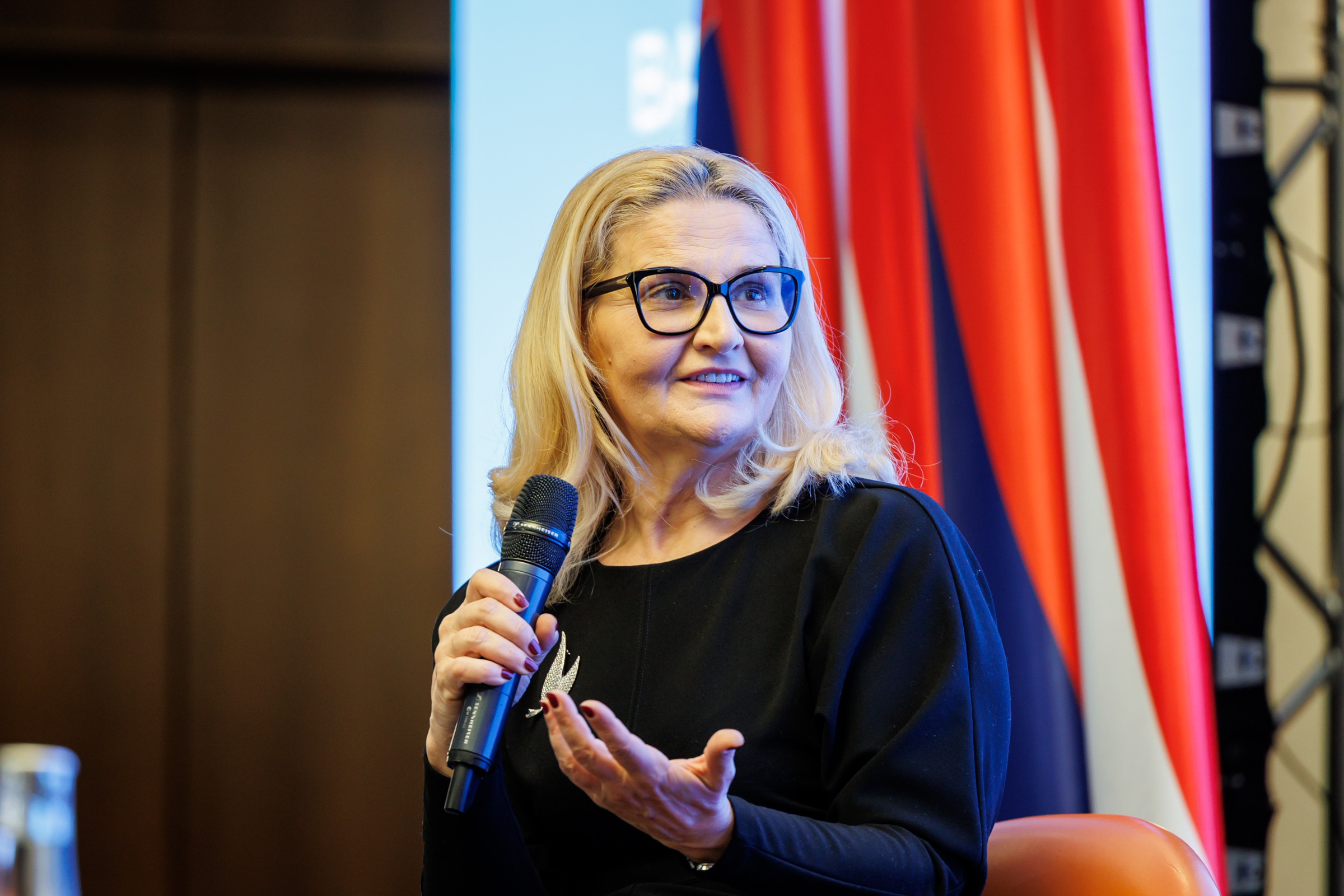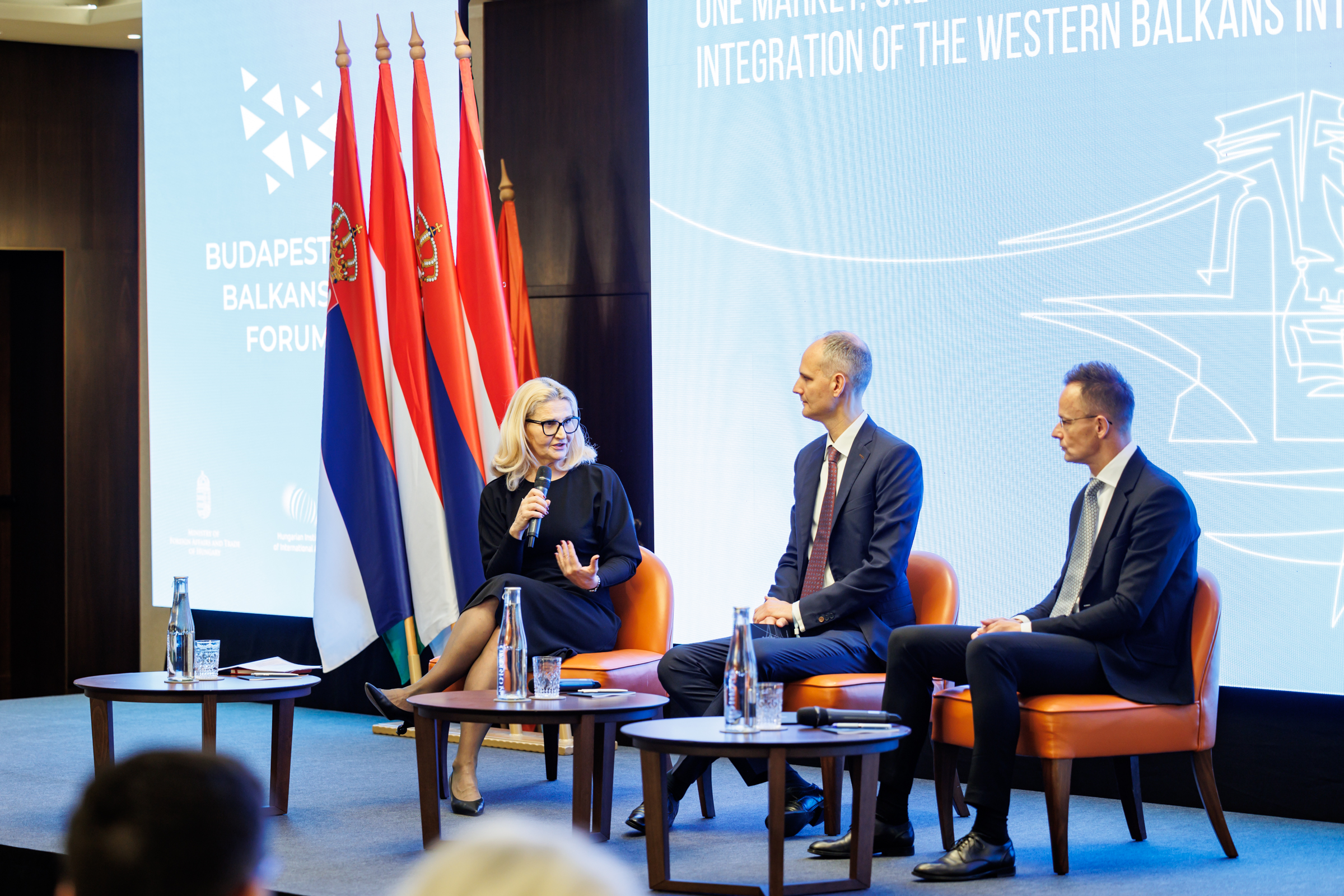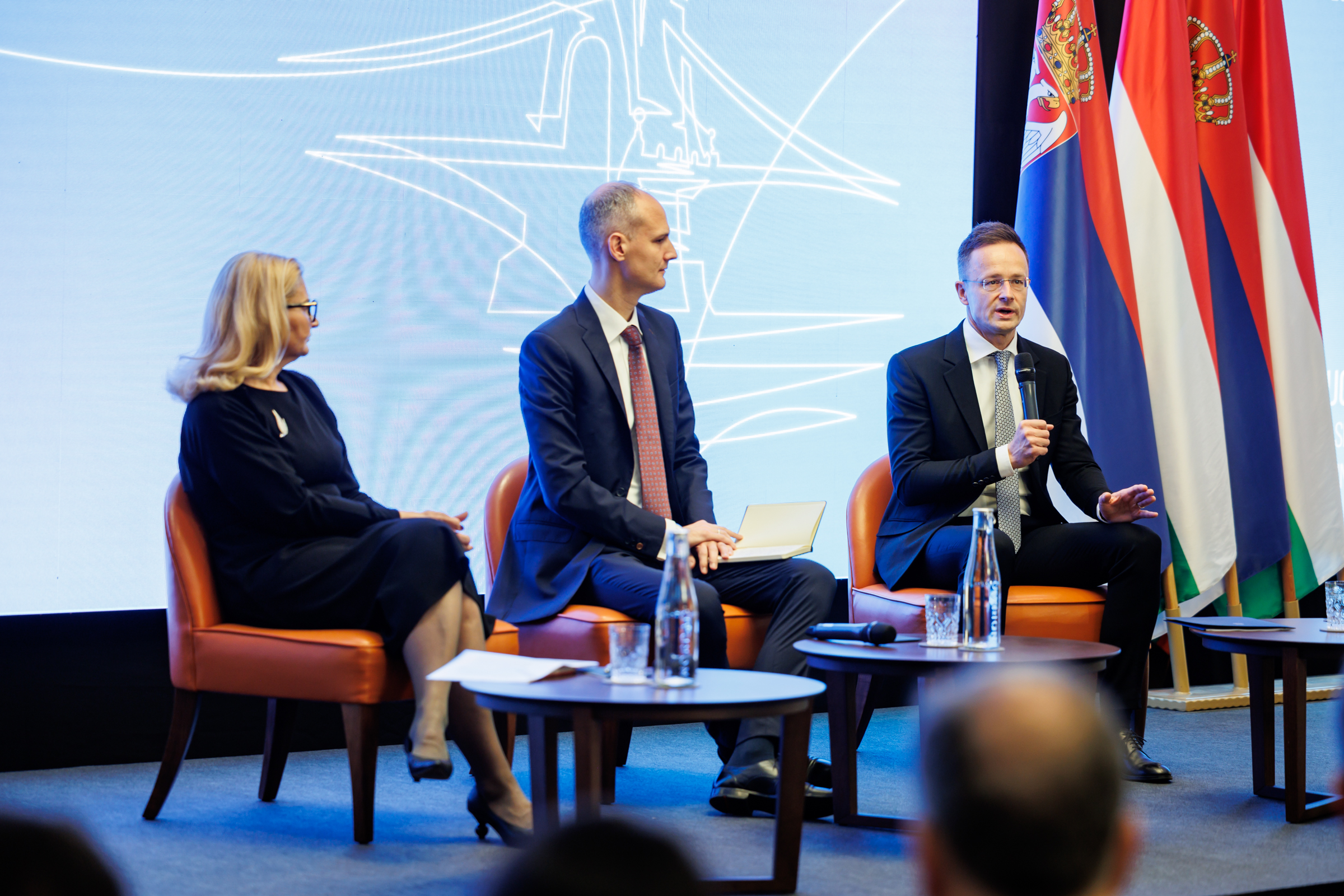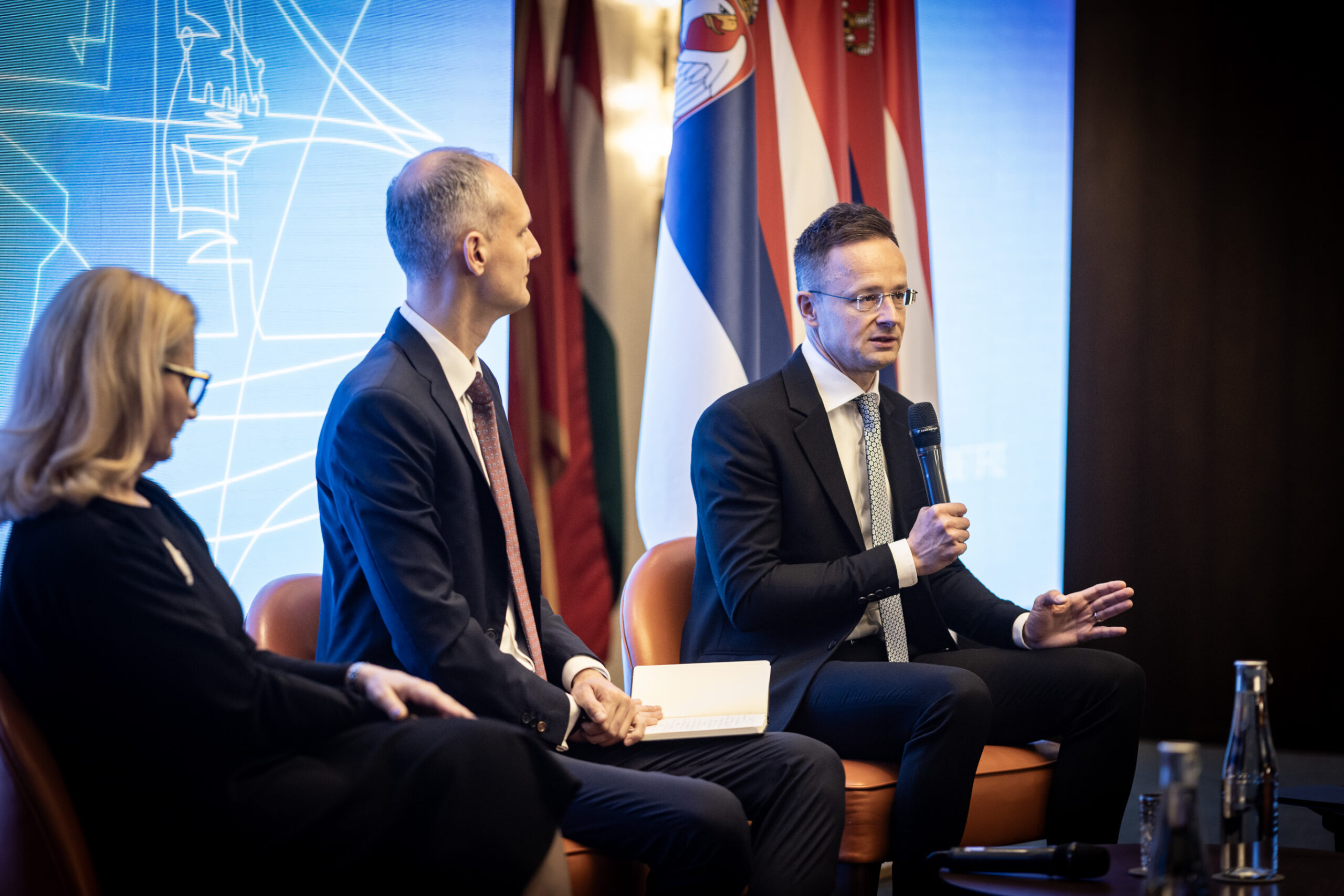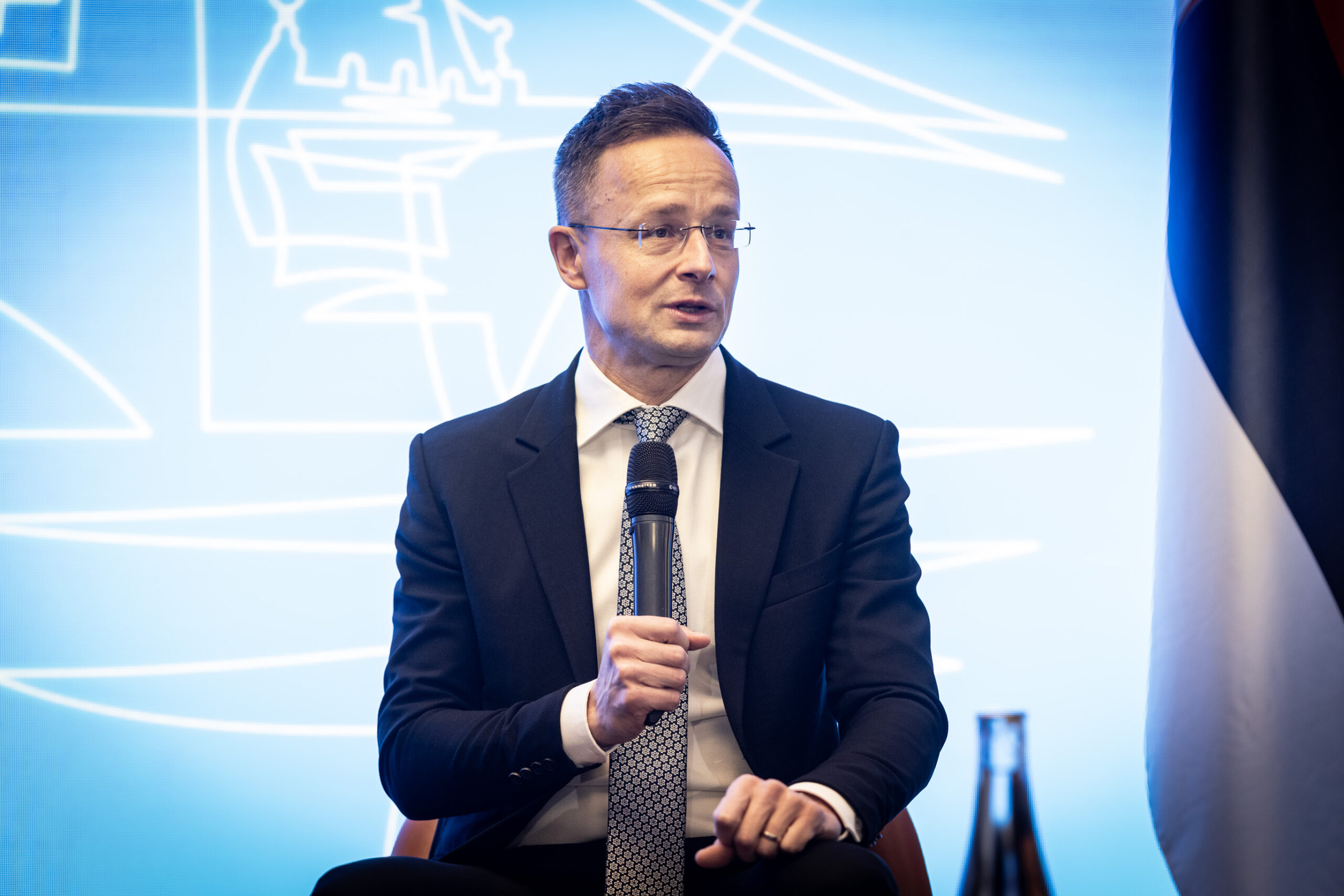The Budapest Balkans Forum continued with a ministerial roundtable discussion with Péter Szijjártó, Minister of Foreign Affairs and Trade of Hungary, and Tanja Miščević, Minister of European Integration of Serbia. The discussion was moderated by Márton Ugrósdy, Deputy State Secretary at the Office of the Prime Minister’s Political Director.
At the beginning of the discussion, Péter Szijjártó noted that the competitiveness and security situation in Europe has been steadily deteriorating in recent years. The European Union needs new impetus and fresh energy, which the accession of the Western Balkan countries could provide. Western Balkans enlargement, however, remains elusive much like “Columbo’s wife”—talked about but never seen. Although the leaders of the member states speak about enlargement in a positive way in public, behind closed doors, Hungary is in the minority with its supportive stance when it comes to making decisions on the region’s integration. The Western Balkan countries have been waiting an average of 14.5 years to join the European Union, which discredits EU enlargement policy and humiliates the countries waiting to join. According to Minister Szijjártó’s view, accepting Ukraine into the EU before the Western Balkan countries is simply impossible if the EU wants to preserve the integrity of the “merit-based accession process” often touted by EU leaders. The lack of clear, honest and open communication from the EU is the main problem currently standing in the way of accession.
Tanja Miščević began her remarks by reflecting on Serbia’s path toward EU accession. Serbia has been working toward this goal since the early 2000s, and legal and practical alignment with the EU has been one of the country’s guiding principles over the past twenty-five years. According to Serbian thinking, EU integration is not simply an option among many but rather the only logical path. In this respect, accession to the EU remains the country’s main strategic goal, but the process itself has been far from satisfactory. One of the elements of the accession process that is often stressed is the fulfillment of rule of law conditions. In her view, after twenty-five years of work, Serbia’s progress is impossible to ignore, and the rule of law problems it faces today are the same problems that any EU member state faces. Serbia now aims to show the EU that it can contribute much more as a member of the bloc than as an external observer.
Turning to the issue of gradual integration, Péter Szijjártó highlighted the lack of straightforward and honest speech in Brussels. In his opinion, gradual integration and other “magic words” are simply used to hide the fact that most member states do not actually support the integration of the Western Balkans. When EU representatives meet, they often complain about the growing influence of countries like Russia, Türkiye, Qatar or Saudi Arabia in the Western Balkans, but the real question is why the European Union’s influence is not growing in the region. It is also important to underline that the countries of the Western Balkans, which have their own historical and geographical specificities, cannot be expected to align their own foreign and security policies with those of the EU one hundred percent without a very clear guarantee that they will be able to join the community.
Tanja Miščević pointed out that the countries waiting for accession have not received any guarantee that gradual integration will not replace full EU membership. At the same time, the EU has acknowledged that the Western Balkan countries have reached the necessary level of cooperation in several policy areas, as evidenced by Serbia having been given the opportunity to join the common energy and environmental policies. Moreover, these are areas where the EU cannot function without cooperation with the Western Balkans, and it shows that the accession of the Western Balkan countries is not only about enlargement but also about the completion of European unity.
Turning to the issue of energy security, Péter Szijjártó noted that the integration of the Western Balkans would indeed not only mean an increase in figures for the EU but would also significantly strengthen the EU’s competitiveness. Since the outbreak of the Russo-Ukrainian war, European countries have proudly proclaimed that they no longer buy oil from the Russians. This is somewhat overshadowed by the fact that Russian oil exports to India have increased elevenfold in the last three years, and India’s oil exports to Europe have also increased severalfold. In addition, Western European countries are proudly proclaiming that they are not receiving Russian gas through pipelines, while Russian LNG exports to these countries were at a record high last year. In Minister Szijjártó’s view, the Western Balkans could be a key player for Europe’s energy security. The only reason why the recent disruption of gas from Ukraine did not have a serious impact on Hungary was that the TurkStream pipeline through Serbia is still running smoothly. Serbia is a reliable partner for Hungary, and there have been many successful cooperation projects between the two countries, including in the field of energy security, as exemplified by the new oil pipeline currently under construction between the two countries.
Tanja Miščević echoed these words and listed several examples of successful cooperation between Serbia and Hungary even beyond energy security, such as in the fields of migration and border protection. This cooperation is beneficial for the EU as a whole and essential for building mutual trust, which is an indispensable element of integration. She concluded by underlining the key role of connectivity in Serbia’s foreign policy strategy. The country is striving to promote only by developing energy resources, but also the infrastructure for their transportation.
